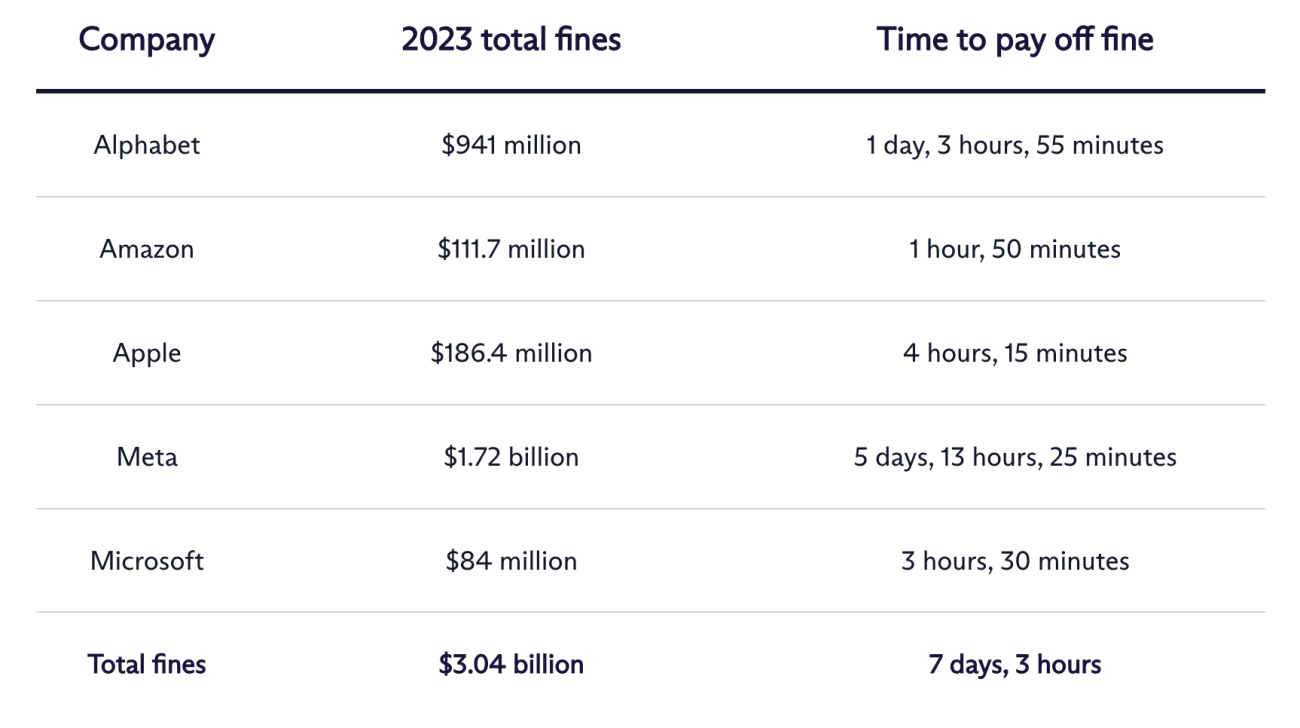The practice of big techs changing their policies on the sly has surged once again, and not for good. Whether it’s collecting your data or using their services for purposes other than what it was built for, these tech juggernauts have never shied away from crossing (legal) boundaries.
Six months ago, Google updated its privacy policy, hinting at mining public data from web sources to enhance its AI models. The search giant has once again been caught fixing how Chrome describes its Incognito mode. The move is a response to the lawsuit that accused Google of illegally tracking browsing activity even in the Incognito mode, for which Google is now liable to pay $5 billion as penalty.
Not just veterans, but even rising industry leaders like OpenAI have been pursuing these practices behind closed doors. A week ago, the Silicon Valley star quietly deleted language expressly prohibiting the use of its technology for military purposes from its usage policy.
Even though the LLM maker is much aware of the risks that can arise through their technology in military applications, the company has chosen to opt for legal technicality over safety. Experts said that OpenAI appears to be silently weakening its stance against doing business with militaries.
Some companies, like X, revamp their policies to help users better understand their data collection practices or comply with data protection laws. Unfortunately, not all of them have good intentions.
A Mixed Record
The money-minting machines of Silicon Valley can do better while acknowledging their wrongdoings. For instance, by providing the means to surf the internet easily, Google has time and again abused its dominant position.
Moreover, since the search giant has managed to become the powerhouse of the internet, it has been treated specially even in the court of law. Why does the company even have a list of ‘antitrust’ cases, given how much of our daily lives revolve around it?
During one of these cases in 2020, the Justice Department officials stated that Google spending profits from its powerful position to buy special treatment for its search engine on devices and web browsers created a “self-reinforcing cycle” of monopoly power abuse.

Just in 2022 and 2023, Google had seven antitrust cases against it, but there are other troublemakers. The rest of the big five giants — Apple (2), Meta (5), Microsoft (2) and Meta (1) — also had a major role to play in the stream of legislation, which imposed $3.04 billion in fines for breaking laws across the globe. Interestingly, in the first week of 2024, they had already earned enough revenue to pay it off.
Preparing for 2024
The current legal remedies do not serve their purpose since companies eventually get away with their malpractices, whether it is about changing their policy or the violations. Assuming that, in good conscience, these companies pay the fines, there is no late payment penalty, even if it is delayed for years.
For instance, Proton pointed out that Google still argues against $8 billion in antitrust fines from the EU in 2017, 2018, and 2019. Even Amazon continues to contest its $886 million fine from 2021. These examples do not show a sign of a well-functioning justice system.
These cases are still being governed by laws before the dot com era. The new internet needs a new set of regulations to make the companies pay up. Currently, the companies consider these fines a cost of doing business since they only represent a per cent or two of their total revenue.
Even the chameleon-like policies need to be translated better and clearly instead of dumping them on the users in a million words. The company should be pressured to disclose the updates publicly instead of being sneaky about them.
Going forward in 2024, lawmakers and authorities need to look beyond the balance sheets and figure out ways to stop the existing and upcoming tech companies from moulding the digital infrastructure as per their will.











































































